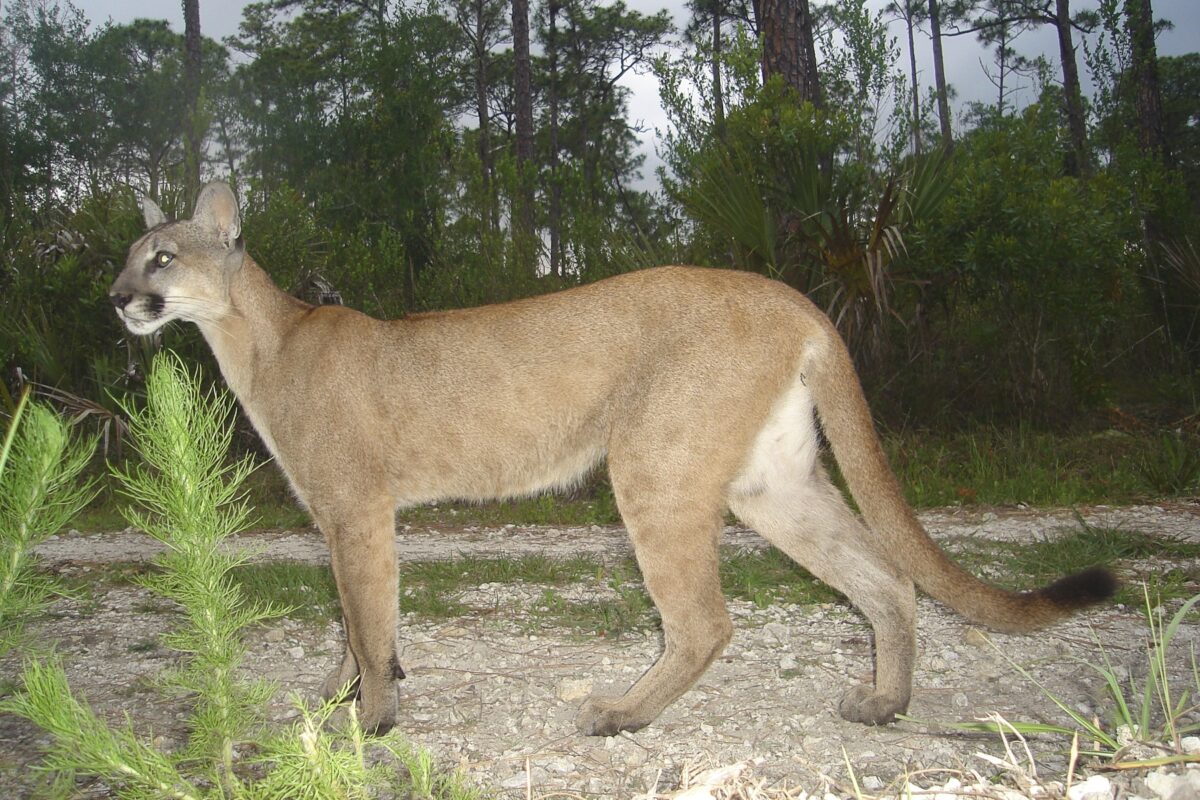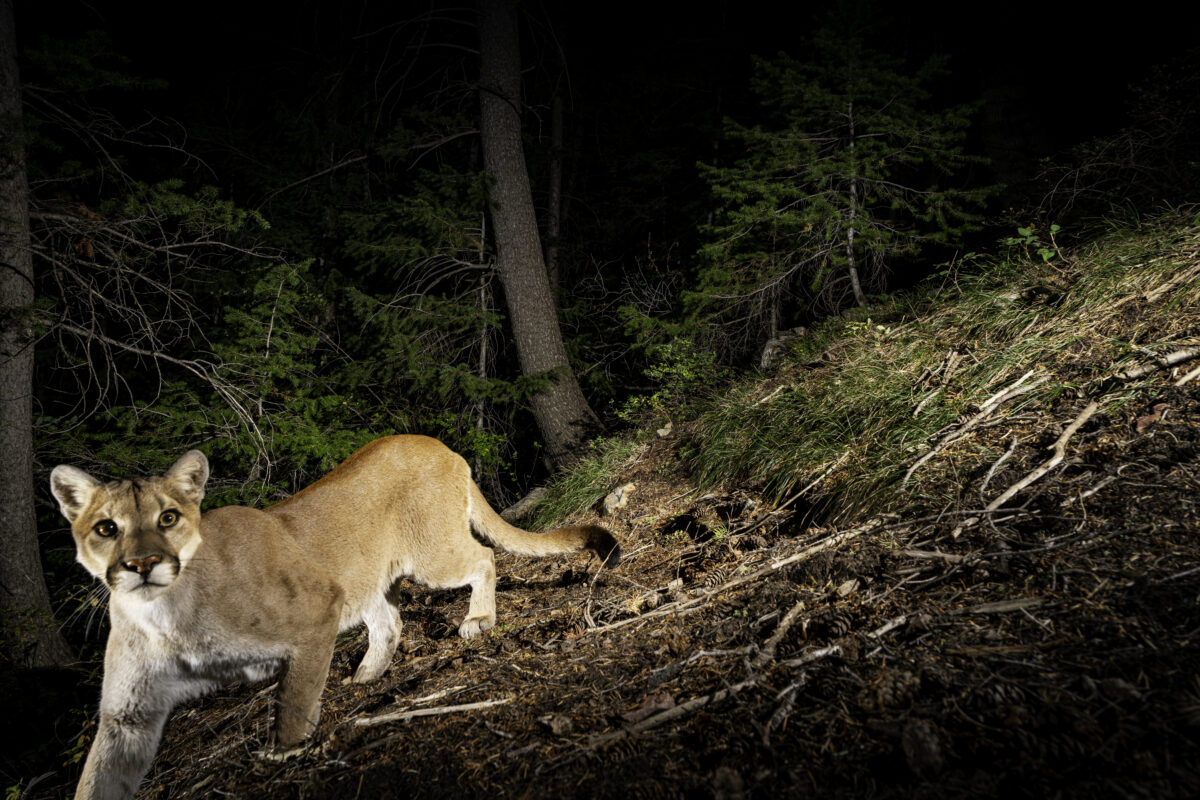In late March, the Mountain Lion Foundation wrote to our membership to express grief and offer our hearts to the Brooks family. Taylen Brooks and his brother Wyatt had been attacked by a mountain lion in El Dorado County, California. Taylen died from his injuries, Wyatt was badly hurt, and the cougar was shot and killed by CDFW officers later that day.
In our letter, we wrote about the exceeding rarity of cougar attacks on people – 29 fatal attacks in the United States since 1900 – but emphasized that statistical unlikelihood doesn’t make the trauma of those deaths any less real. We said:
“In the West, we live alongside wildlife like mountain lions, wolves, coyotes, bears, and other animals. At the Mountain Lion Foundation, it is our hope and purpose to ensure that these types of traumatic encounters will be as rare as possible.”
Since March, we have been working proactively in El Dorado County and with surrounding communities to do precisely this: to minimize future cougar conflict with people, pets, and livestock through education about coexisting safely and peacefully with these cats.
Over the past five months, we’ve supported community members, government officials, and reporters seeking more information about why the attack happened and about California cougars in general. Our staff, volunteers, and board members have corresponded with countless individuals who want to know more about how to live safely in mountain lion country. In every conversation, we’ve shared resources about cougar biology and ecology including our Essential Guide to Recent Scientific Research about Mountain Lions. The Essential Guide provides straightforward, plain-language answers to some of the most asked questions about mountain lions, backed up by extensive citations from recent scientific research.
We’ve also been working on the ground in and around El Dorado County and neighboring Amador County to build relationships with community members and offer support to those in the ranching community. In May, Gowan Batist, Coexistence Programs Manager, and Chelsea Robinson, Membership Manager, gave a public presentation about cougar biology and behavior to a packed room in Cool, California, 12 miles west of Georgetown. Later that month, Gowan hosted a Zoom meeting with ranchers from Amador and El Dorado counties. The community had requested advice on keeping their livestock safe from cougars and coyotes through non-lethal deterrents like low-cost fencing, economical livestock pens, sonic alarms, flashing lights, and livestock guardian dogs.
In June, Robin Parks, our California Field Representative and Coexistence Ambassador, presented a talk to the Placerville community at the El Dorado County Library. With a background in law enforcement investigation, Robin presented information about coexisting with mountain lions as well as how to support state agencies so that people and cougars stay safe when there are reports of a conflict. Robin’s talk in June has had ripple effects in El Dorado County, and we’re encouraged by the new relationships that we’ve built with residents and elected officials in the community.
In September, Brent Lyles, our Executive Director, will present a public talk in partnership with Tri County Wildlife Care in neighboring Amador County, where community concern is also running high. We also hope to connect with El Dorado County law enforcement leaders to have productive conversations about how to distribute accurate, effective, science-based information to the public about coexisting with wildlife in mountain lion country.
The Mountain Lion Foundation continues to mourn with the El Dorado County community following the tragic loss of life this March. As we all process this heartbreaking event, our focus remains on supporting efforts to minimize future human-wildlife conflicts. We believe that thoughtful, informed discussions about coexisting safely with wildlife are essential for our shared well-being. When appropriate, we encourage our members to contribute to these delicate conversations by sharing factual, scientific information, always with the utmost empathy and respect for those affected by this tragedy.



 Facebook
Facebook Twitter
Twitter Send Email
Send Email


